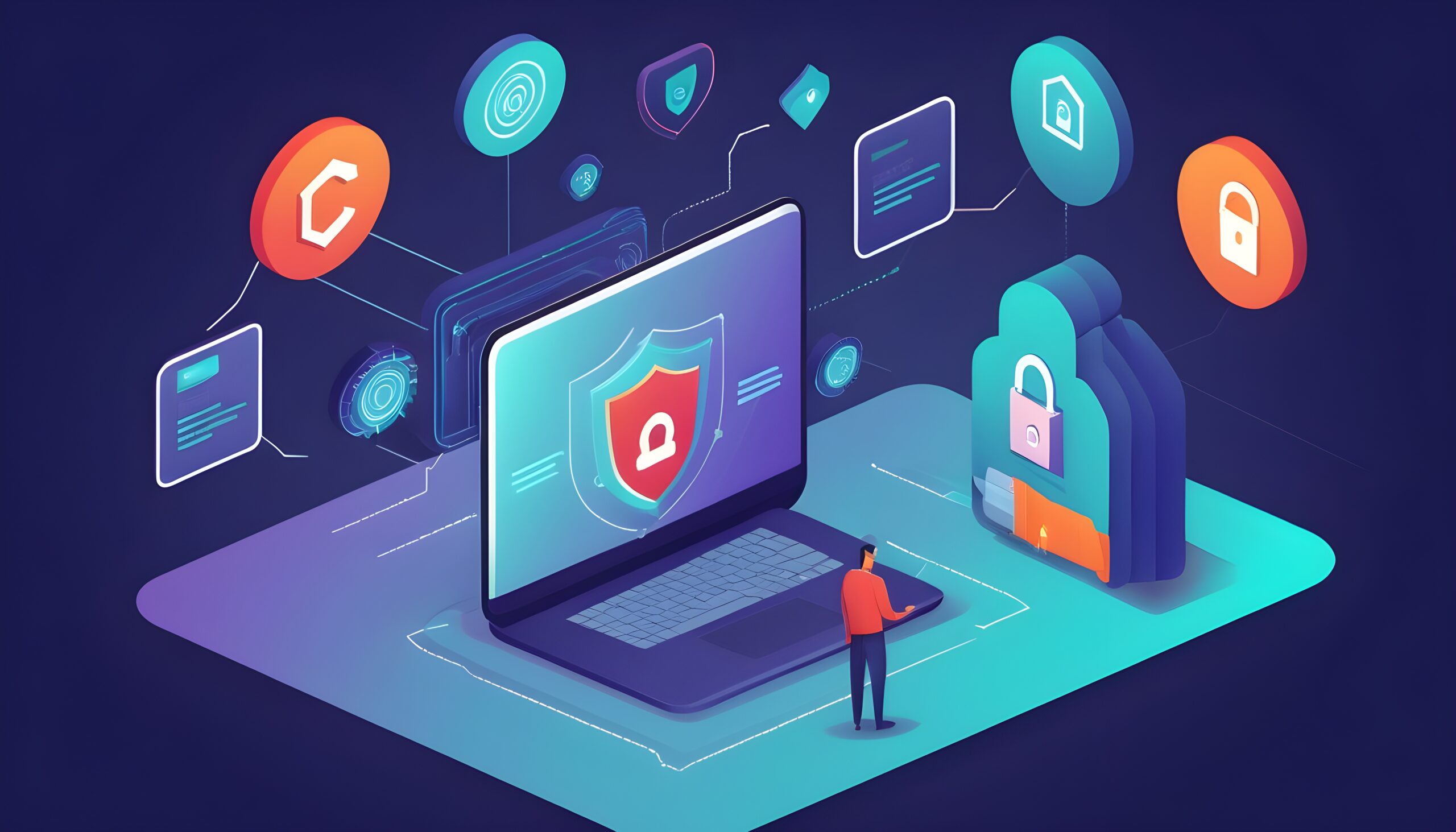Explore the crucial role of cybersecurity in digital marketing to protect digital marketers from digital threats.

Understanding & Mitigating Digital Marketing Risks
In today’s digital age, cybersecurity has become a critical concern for businesses across all industries, including digital marketing. The threat landscape in digital marketing is constantly evolving, with cybercriminals finding new ways to exploit vulnerabilities and gain unauthorized access to sensitive data.
Understanding the threat landscape is essential for digital marketers to effectively protect their online assets and customer data. It involves staying updated on the latest cybersecurity threats, such as malware, phishing attacks, data breaches, and other malicious activities.
By understanding the threat landscape, digital marketers can identify potential risks and vulnerabilities in their digital marketing strategies and take proactive measures to mitigate them. This includes implementing robust security measures, regularly updating software and systems, and educating employees about cybersecurity best practices.
Data Leaks, Damaged Trust: Cybersecurity in Marketing
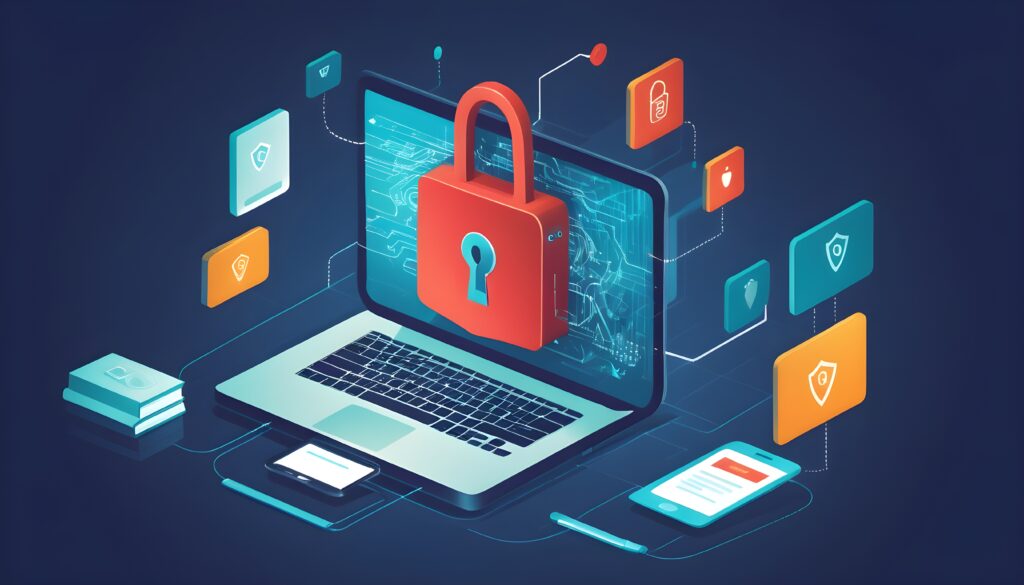
Cybersecurity breaches in digital marketing can have severe implications for businesses, both financially and reputationally. When customer data is compromised, it can lead to significant financial losses, legal liabilities, and damage to the brand’s reputation.
One of the major implications of cybersecurity breaches is the loss of customer trust. Customers expect businesses to keep their personal and financial information secure, and a data breach can erode that trust. This can result in a loss of customers and damage to the company’s bottom line.
Moreover, cybersecurity breaches can also result in regulatory penalties and legal consequences. Many countries have strict data protection laws and regulations in place, and businesses that fail to adequately protect customer data can face hefty fines and legal actions.
To mitigate the implications of cybersecurity breaches, digital marketers should prioritize implementing robust security measures, regularly monitoring and updating systems, and investing in cybersecurity training for employees. Prompt detection and response to breaches can minimize the damage and help regain customer trust.
Cyber Defense: Top Security Measures
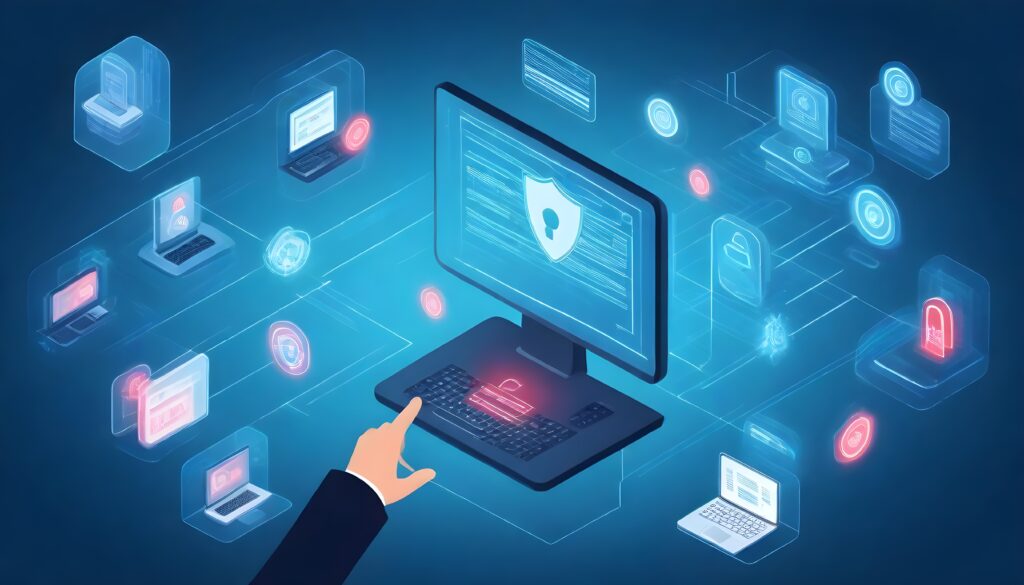
Implementing effective cybersecurity measures is crucial for protecting digital marketing efforts. Here are some best practices to consider:
- Use strong and unique passwords for all accounts and regularly update them.
- Enable multi-factor authentication to add an extra layer of security.
- Regularly update software, plugins, and systems to patch security vulnerabilities.
- Use secure hosting platforms and regularly backup data.
- Encrypt sensitive data, both at rest and in transit.
- Train employees on cybersecurity best practices and provide regular security awareness sessions.
- Monitor network traffic and implement intrusion detection and prevention systems.
- Conduct regular security audits and vulnerability assessments.
By following these best practices, digital marketers can significantly enhance their cybersecurity posture and protect their digital assets from potential threats.
Building Trust with Customers through Cybersecurity
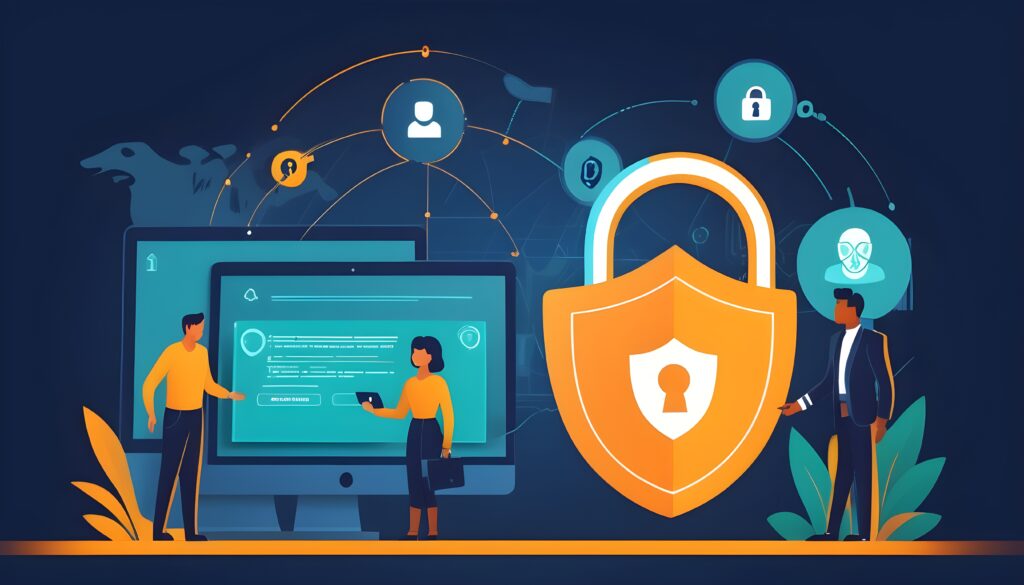
Building trust with customers is essential for any successful digital marketing strategy, and cybersecurity plays a crucial role in establishing and maintaining that trust. When customers feel confident that their personal information is safe and secure, they are more likely to engage with a brand and make purchases.
To build trust with customers through cybersecurity, digital marketers should communicate their commitment to data security and privacy. This can be done through clear and transparent privacy policies, secure online transactions, and regular updates on cybersecurity measures taken by the company.
Additionally, providing secure online experiences, such as encrypted connections and secure payment gateways, can also contribute to building trust. Digital marketers should prioritize user experience and ensure that customers feel safe and protected when interacting with their brand online.
By prioritizing cybersecurity and actively communicating their efforts to customers, digital marketers can establish a strong foundation of trust and loyalty, leading to long-term success in the digital marketing landscape.
The Future of Cybersecurity in Digital Marketing
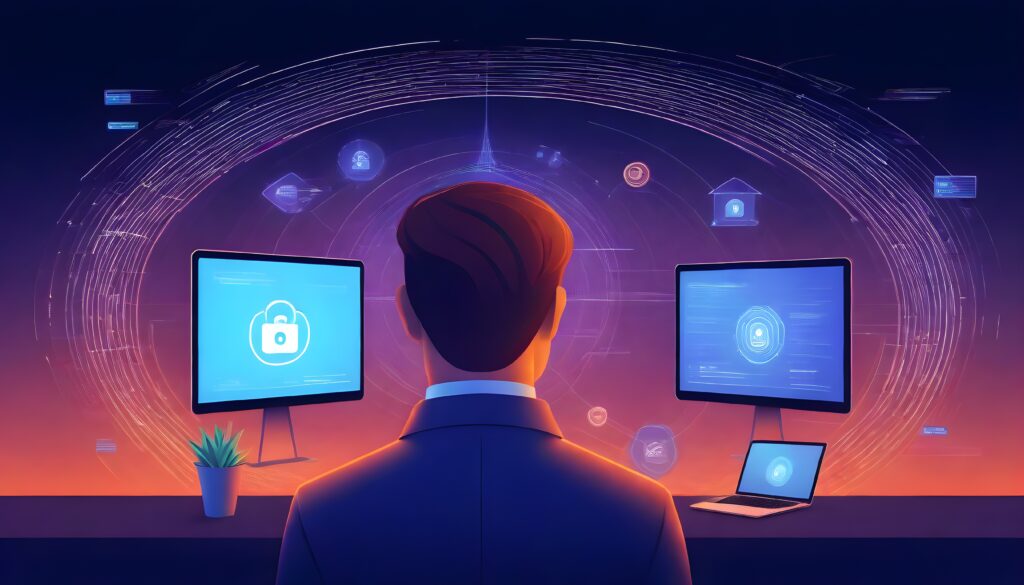
As technology continues to advance, the future of cybersecurity in digital marketing will become even more critical. With the increasing connectivity of devices, the rise of artificial intelligence, and the growing reliance on data-driven marketing strategies, the potential attack surface for cybercriminals will expand.
In the future, cybersecurity will need to adapt and evolve to keep up with emerging threats and technologies. This includes advancements in machine learning and artificial intelligence to detect and respond to cyber threats in real-time.
Additionally, businesses will need to invest in cybersecurity talent and expertise to effectively protect their digital marketing efforts. This includes hiring skilled professionals who can identify vulnerabilities, implement robust security measures, and respond swiftly to cyber incidents.
Furthermore, regulations and compliance requirements related to data protection and privacy will continue to evolve, placing even greater emphasis on cybersecurity in digital marketing. Businesses will need to stay updated on these regulations and ensure compliance to avoid legal consequences.
Overall, the future of cybersecurity in digital marketing will require a proactive and adaptive approach to protect against emerging threats and secure customer data in an increasingly interconnected digital landscape.
Conclusion
The importance of web security in digital marketing is paramount if you want to build trust with your clients and safely expand your business. You can mitigate risk by employing basic security principles, like strong passwords, two-factor authentication, up-to-date web tools, and antivirus software. VPNs and separating home and work activity can help, too. Most of all, remember that using common sense and staying educated on cybersecurity risks, like phishing and social engineering, goes a long way when it comes to keeping your digital data safe.

